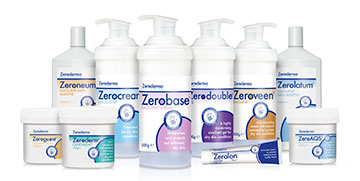Are face masks playing havoc with your skin?

The latest lockdown is leading to soaring stress levels, which for many of us shows on our skin. Regular, but essential mask wearing is also taking a toll, leading to dry and irritated skin. If you’re suffering, you’re not alone and I’m here to help.
As a community pharmacist, I’m often asked for advice about acne and dry skin from wearing a face mask. These problems have been named ‘maskne’1, which originally described acne caused by wearing a face covering (mask + acne = maskne). But it’s now often used to include all types of skin irritation linked to mask wearing.
As anyone who wears glasses knows, masks can hold moisture. They can also trap sebum (oil) in the skin. Both of these can trigger or aggravate acne. So if your acne has got worse, it’s probably being irritated by wearing a face covering. Try using a gentle skin cleanser twice a day and look for active ingredients such salicylic acid or benzoyl peroxide which can help acne-prone skin.
Recent research2,3 shows that wearing a face mask for extended periods of time can cause skin irritation. If you already have sensitive skin, dermatitis or eczema, this can be made worse. Areas where a mask can rub the skin may become red and sore and the skin can feel very irritated. So if your skin is suffering, there is a scientific explanation. I realise that isn’t a lot of comfort when you’re feeling self-conscious on zoom, but there are some very easy steps which will help protect your skin:
- Use a fragrance-free emollient on your face after wearing a face covering.
- Apply the emollient with smooth downwards strokes, but don’t rub it in.
- Avoid wearing make-up under your mask, as it may block skin pores.
- If your lips become dry, wear a fragrance–free lip salve or an emollient ointment.
- Choose a face covering made from 100% cotton, that can be washed regularly.
- Make sure the covering fits snugly around your nose and mouth but isn’t too tight.
If you already have a dry skin condition like eczema
- Clean your face with an emollient, as a soap substitute, and avoid the use of all soaps and detergents on your face.
- Continue using your prescribed skin treatment.
- Speak to a health professional if your skin condition is becoming worse or you’re feeling concerned.
It’s also worth remembering that you can download an exemption template if you have an age, health or disability reason for not wearing a face covering. Although, as the regulations change constantly, it’s worth checking the latest guidance.
So if your skin is suffering (like most of us), you’re not alone and taking a few simple steps will make it easier to face your next zoom call!
References
- https://www.britishskinfoundation.org.uk/News/maskne-whats-the-hype
- Veraldi S., Angileri L., Seborrheic dermatitis and anti-COVID-19 masks; J Cosmet Dermatol. 2020;19:2464–2465.
- Merhand, S., Misery, L., Delvigne, V., Le Floch, C. and Taïeb, C. (2020), Wearing a mask and skin disease: patients with atopic dermatitis speak it out. J Eur Acad Dermatol Venereol. Accepted Author Manuscript. https://doi.org/10.1111/jdv.16917

